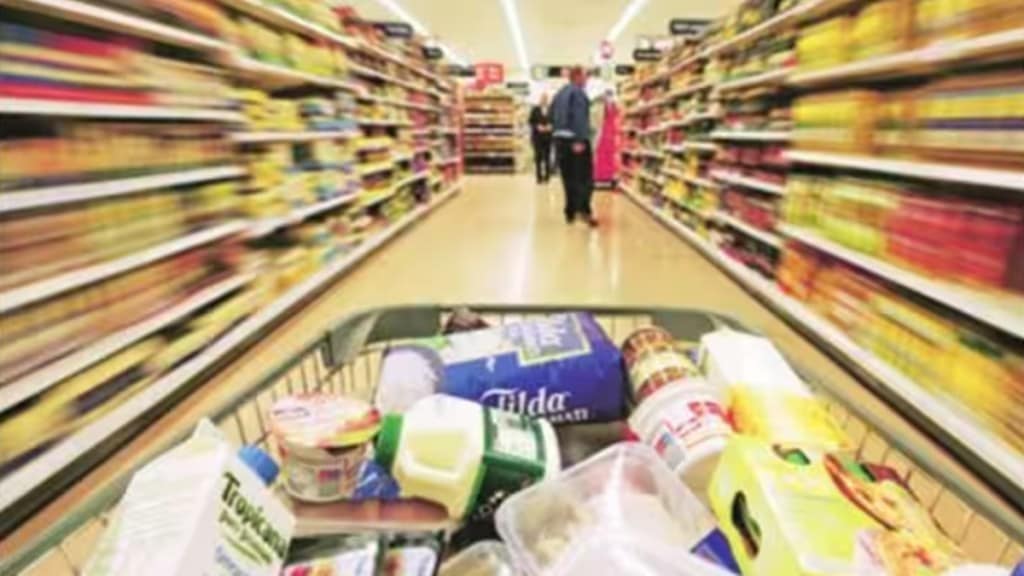The retail sales value (RSV) of the consumer products sector has grown tremendously throughout the year with the industry globally rising by close to 10 per cent year over year in 2023. While that surge is nearly double the 10-year average growth rate, three-quarters of it is likely due to price increases rather than volume gains, said a survey report by Bain & Company. In the US and Europe, price increases accounted for 95 per cent of RSV growth. That imbalance isn’t sustainable, and emerging markets will be key to driving profitable, volume-driven growth for consumer packaged goods (CPGs) in the years ahead.
Bain & Company’s first annual Consumer Products Report included a survey of more than 120 senior consumer products executives around the world and underlines just how much rising input costs have contributed to the widespread decoupling of price and volume growth. Some 82 per cent of respondents said inflation had a major impact on their business in the previous year, making it the biggest issue of all for executive teams.
“As inflation slows, a paradox is emerging for consumer companies,” said Richard Webster, head of Bain & Company’s global Consumer Products practice. “While on one hand, prices have risen too much to maintain consumer spending, on the other, they haven’t risen enough to keep up with increasing costs and mounting pressures from retailers. Future growth will require a fundamental reshaping of value propositions, portfolios, and business models.”
Though the sector overall grew about 10 per cent in 2023, Bain & Company estimates that across a subset of top CPGs, average growth was closer to 4 per cent, in a reversal of several years of outperformance. Consumers are switching to more affordable private-label brands or more premium insurgent brands that offer greater consumer value. They are also waiting for promotions or just buying less. Slightly more than half of executives said they had been significantly affected by consumers reining in spending in 2023.
And while leading CPGs have increased prices by more than 20 per cent on average since the third quarter of 2021, that has been blunted by similar growth in the cost of goods sold. For top CPGs, the average EBIT margin remains near a 10-year low, and retailers have been looking to share their own margin pain with CPGs, the report stated.
To ease the pressure, half of top CPGs, it added, reduced headcount significantly last year or froze hiring, following ongoing cost-reduction measures. But there are only so many cost levers that can be pulled. With no room left on price, a return to volume growth will be critical.
For many CPGs, part of the answer will involve trying their hands in the emerging markets, which offer more room for volume growth. Emerging markets accounted for the vast majority of global volume gains in 2023. India was a standout example of balanced growth, with RSV advancing by nearly 15% since 2022, aided by consumers switching from local or unbranded products to bigger, international brands, the report said.
A widening digital gap
Further, digitalization of business processes has become more urgent, as performance gaps widen between CPGs that made early investments and those that did not. Digital leaders will have an advantage in capitalizing on vast pools of data and maturing generative AI technologies to develop both consumer-facing use cases that add revenue and internal applications that generate cost efficiencies. The gains are likely to be significant. And while leaders are moving to build differentiated capabilities, most CPGs will still need to focus significant resources on the migration to the latest ERP software.
Mounting sustainability pressures
Also, consumers of today globally have become more inclined to sustainability while shopping and they say that they’d be willing to pay about 10 per cent more for sustainable products. In line with this, retailers are looking for suppliers that can help them reduce their own direct and indirect emissions as climate-related disclosures move to a more regulated and mandated basis in many countries. Despite this broad momentum, only about a third of CPGs are on track to meet their Scope 1–3 decarbonization commitments. Bain’s survey showed only muted urgency on environmental, social, and governance (ESG) issues. While nearly two-thirds of executives who cited ESG as a priority are focused on executing on existing commitments, only 20 per cent of respondents said ESG was a priority in 2024.
“This year’s winners will be the companies that make bold moves to reset their growth agendas, while increasing productivity and capitalizing on the opportunities presented by digitalization,” said Charlotte Apps, executive vice president of Bain’s Consumer Products practice. “While this is undeniably the top priority for consumer products this year, that short-term imperative still must lead to longer-term sustained growth. A balanced approach to serving all stakeholders—consumers, customers, employees, and the planet—is a powerful way of achieving those twin goals.”

